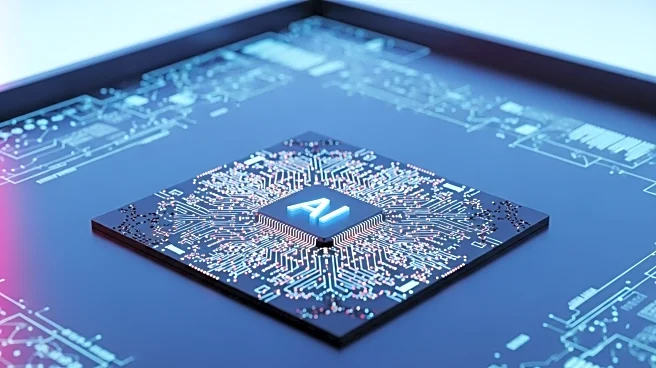What's Happening?
Anysphere, an AI startup, is making significant strides in the coding industry with its AI-powered software, Cursor. This software assists developers by generating code in various programming languages, creating new functions, and offering suggestions and edits based on prompts from software engineers. The company, founded three years ago, has rapidly grown to a valuation of $9.9 billion and achieved $100 million in annual recurring revenue. Anysphere's President, Oskar Schulz, emphasizes the company's mission to transform software engineering and redefine coding practices. Major companies like OpenAI, Midjourney, Shopify, and Instacart are already utilizing Cursor, indicating a shift in how coding is approached.
Why It's Important?
The rise of Anysphere and its software, Cursor, highlights the growing influence of AI in the software development industry. By automating coding tasks, Anysphere is potentially reducing the need for manual coding, which could lead to increased efficiency and productivity for developers. This shift may also impact employment in the sector, as AI tools become more prevalent. Companies that adopt such technologies could gain a competitive edge, while those that do not may struggle to keep up. The broader implications for the tech industry include accelerated innovation and changes in the skill sets required for software engineering roles.
What's Next?
As Anysphere continues to expand its reach, more companies are likely to adopt AI-powered coding tools like Cursor. This could lead to further advancements in AI technology and its integration into other areas of software development. Stakeholders, including tech companies and educational institutions, may need to adapt by updating training programs and curricula to prepare future developers for an AI-driven industry. Additionally, there may be discussions around the ethical use of AI in coding and its impact on job displacement.
Beyond the Headlines
The integration of AI in coding raises questions about the future of software engineering as a profession. While AI tools can enhance productivity, they also challenge traditional coding practices and the role of human developers. Ethical considerations, such as the potential for AI to introduce biases in code generation, will need to be addressed. Furthermore, the reliance on AI could lead to a shift in the cultural perception of coding, from a highly skilled task to one that is increasingly automated.









